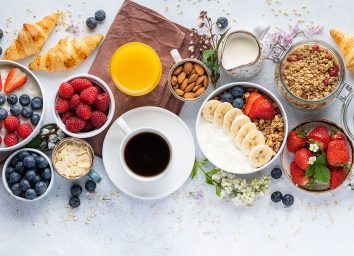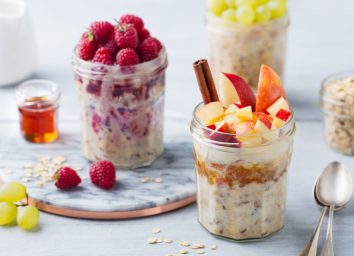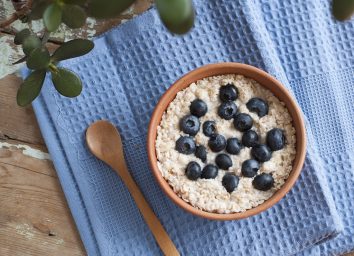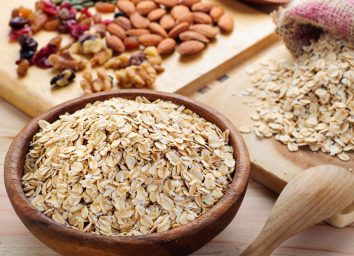6 Oatmeal Mistakes Making You Gain Weight
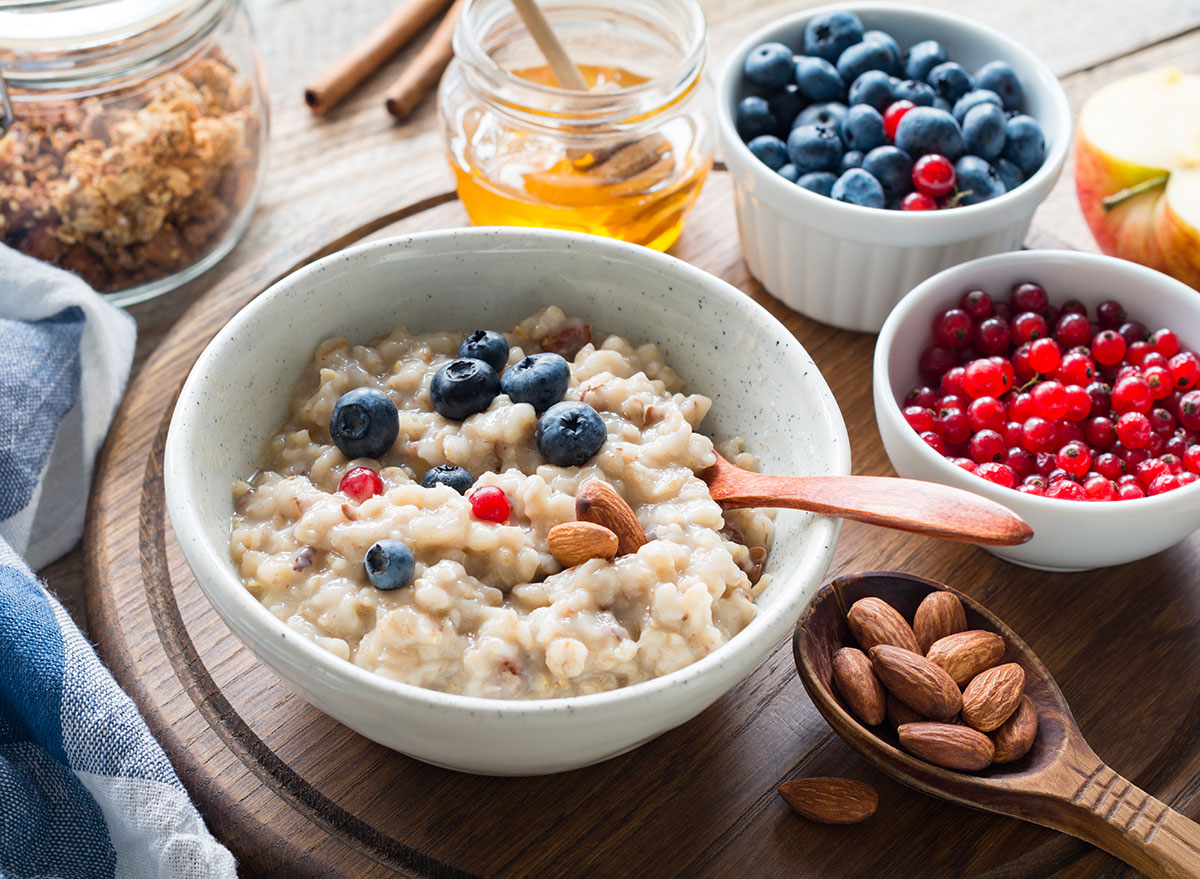
Oatmeal is one of the best breakfast options available. Whether you make it in the microwave or opt for creative overnight oats recipes, this hearty whole-grain cereal can fill you up and help you slim down. But only if you make it properly.
That's right; as healthy as oatmeal can be, there are still common mistakes that can make you pack on the pounds. From overdoing it with the maple syrup to eating it plain, oatmeal can quickly go from a slimming breakfast to a blood sugar-spiking, fattening disaster—which could make it one of the worst breakfast habits for your waistline. Here's what to avoid the next time you mix up a bowl for breakfast. And when you get sick of oatmeal, try a smoothie. Need a reason? How about What Happens to Your Body When You Drink a Smoothie Every Day.
You're eating it plain
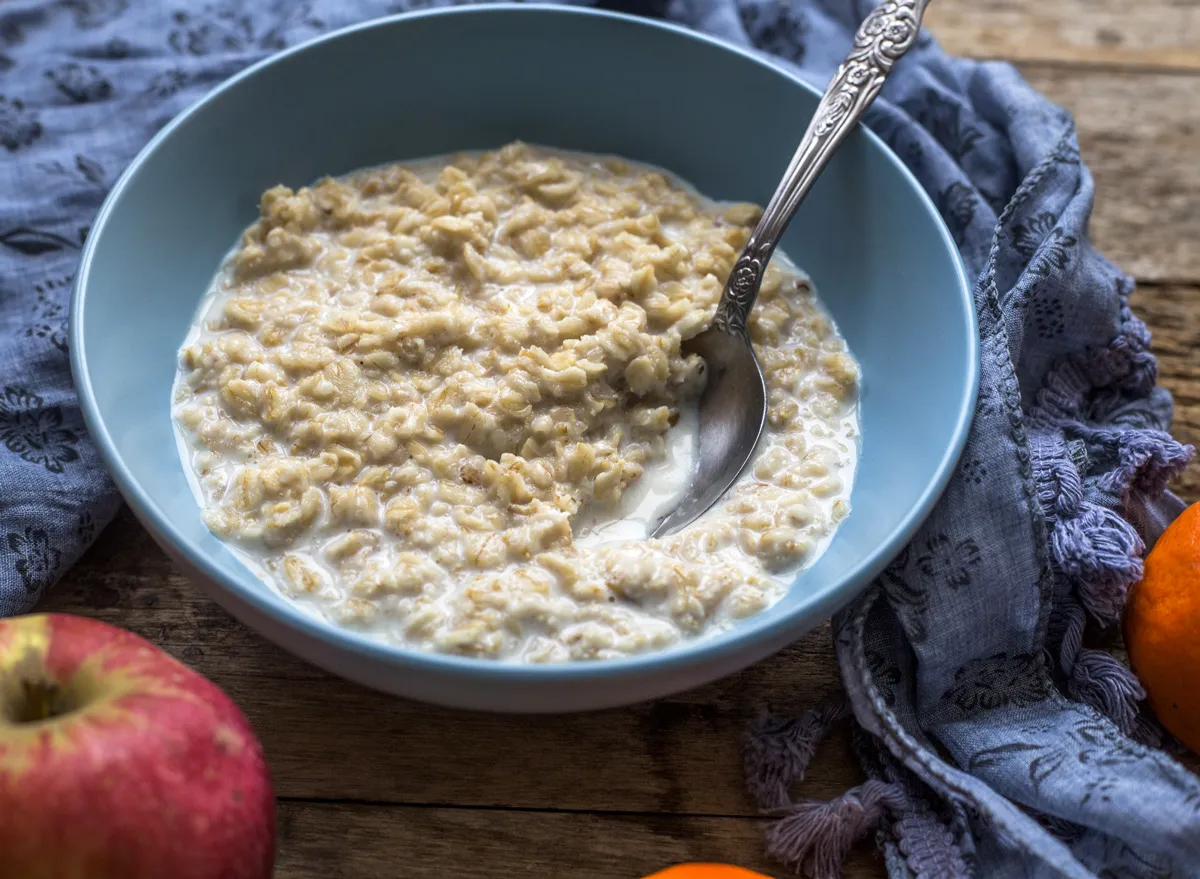
On its own, oatmeal is relatively low-calorie, high in fiber, and high in protein. A serving of ½ cup dry oatmeal made with water sets you back 150 calories, 3 grams of fat, 27 grams of carbs, 4 grams of fiber, 1 gram of sugar, and 5 grams of protein. But even though it's made with whole grain oats, oatmeal is pretty carb-heavy. To maximize satiety and prevent spikes in blood sugar, add a little more fat, fiber, and protein to your oatmeal. Stirring in one tablespoon of nut butter not only makes it creamy and delicious, but it will also add about 4 more grams of protein and 8 more grams of fat. Tossing in some chia seeds and/or almond slivers will also do the trick.
Looking for more helpful tips? Sign up for our newsletter to get the latest food news delivered straight to your inbox.
You're eating packaged flavored oatmeal
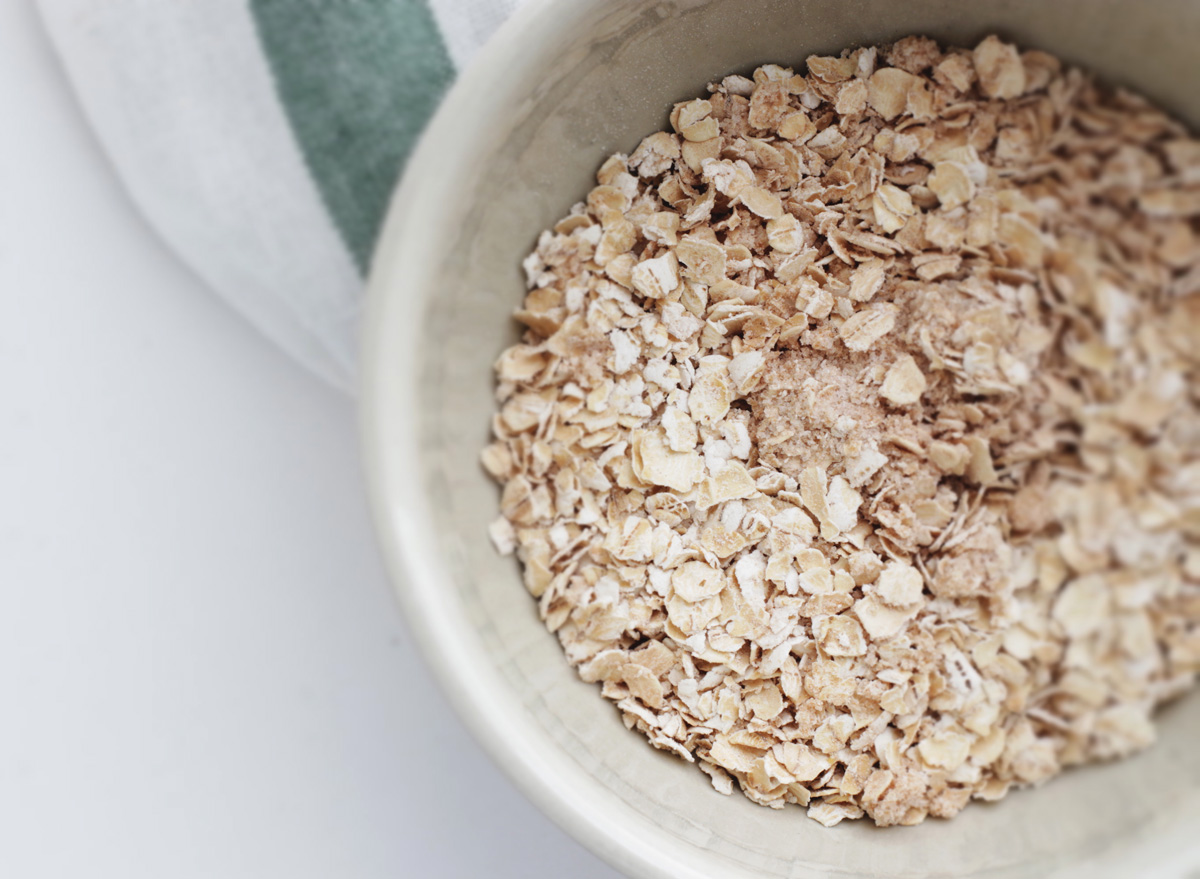
You may think you're saving time by buying conveniently prepackaged oatmeal, but even healthy-sounding instant oatmeal varieties can be teeming with artificial ingredients and sugar. Some instant oatmeal packets contain as much as 14 grams of sugar and questionable ingredients like inflammatory vegetable oil and artificial dyes. You're better off buying plain, unflavored oats and adding your own toppings. Plus, it will save you money in the long run.
You're adding too much sugar
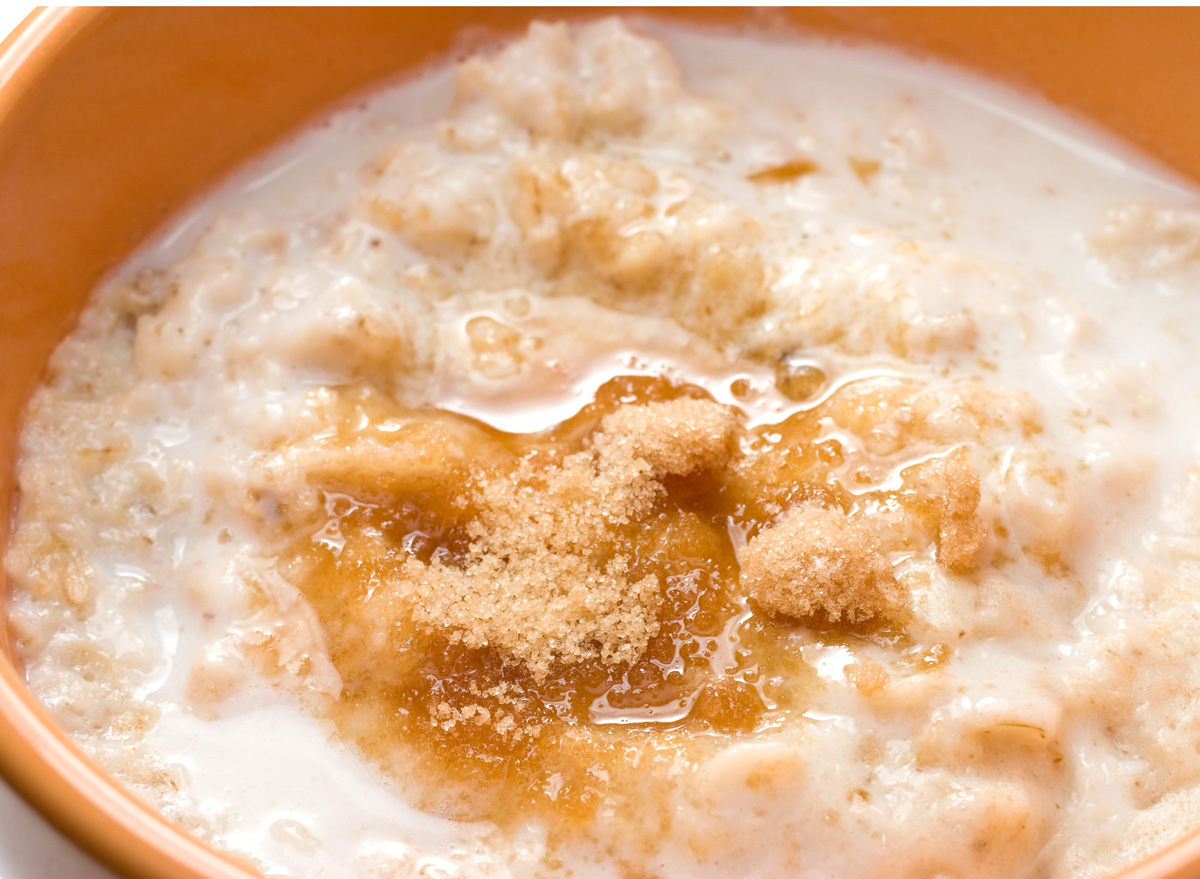
Starbucks' Classic Whole-Grain Oatmeal is a great breakfast option, especially when you're on the go—but only if you just add the mixed nuts. Tossing in the brown sugar packet that comes with it adds in an additional 12 grams of sugar and 50 calories. This goes for when you enjoy it at home; adding in brown sugar, maple syrup, or table sugar can quickly up the carb count and spike your blood sugar. If you're craving sweetness in your oatmeal, opt for fresh fruit and cinnamon instead. A handful of blueberries or chopped apple slices will add a little natural sugar with some essential filling fiber to keep you full until lunchtime.
You add dried fruit
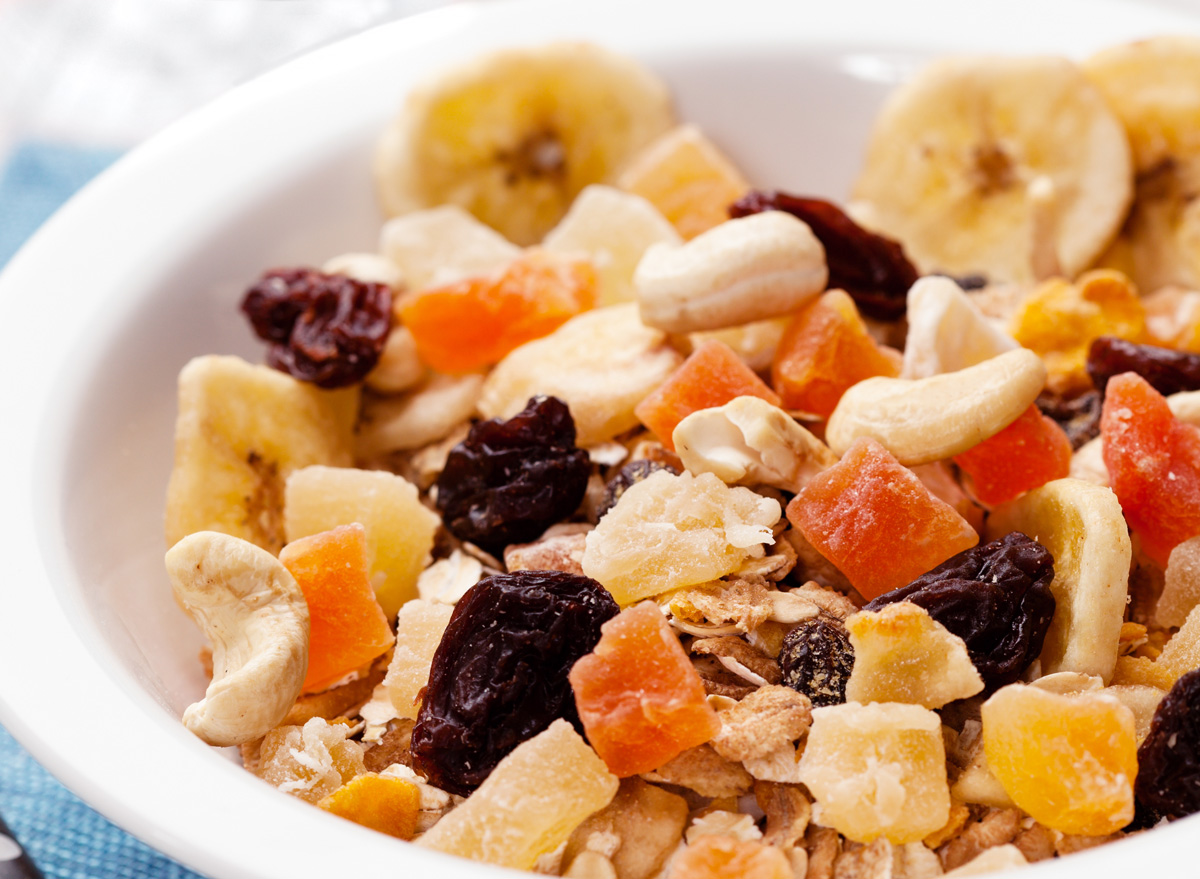
Although we're all about adding your own toppings to oatmeal rather than buying a prepackaged variety, dried fruit packs a ton of extra sugar without the necessary fiber of fresh fruit. Tossing in just ¼ of a cup of Ocean Spray Craisins will tack on a whopping 29 grams of sugar and 33 grams of carbs. Compare that to fresh cranberries, which are only 46 calories and 4 grams of sugar for a whole cup. Craisins aren't the only dried fruit you should worry about. If you like to sweeten your oatmeal with dates as a substitute for sugar, you may be in for a rude awakening. Each pitted date contains 16 grams of sugar—but only 1.5 grams of fiber. Do your waistline a favor, and opt for fresh fruit next time you whip up a bowl.
You're not adding protein
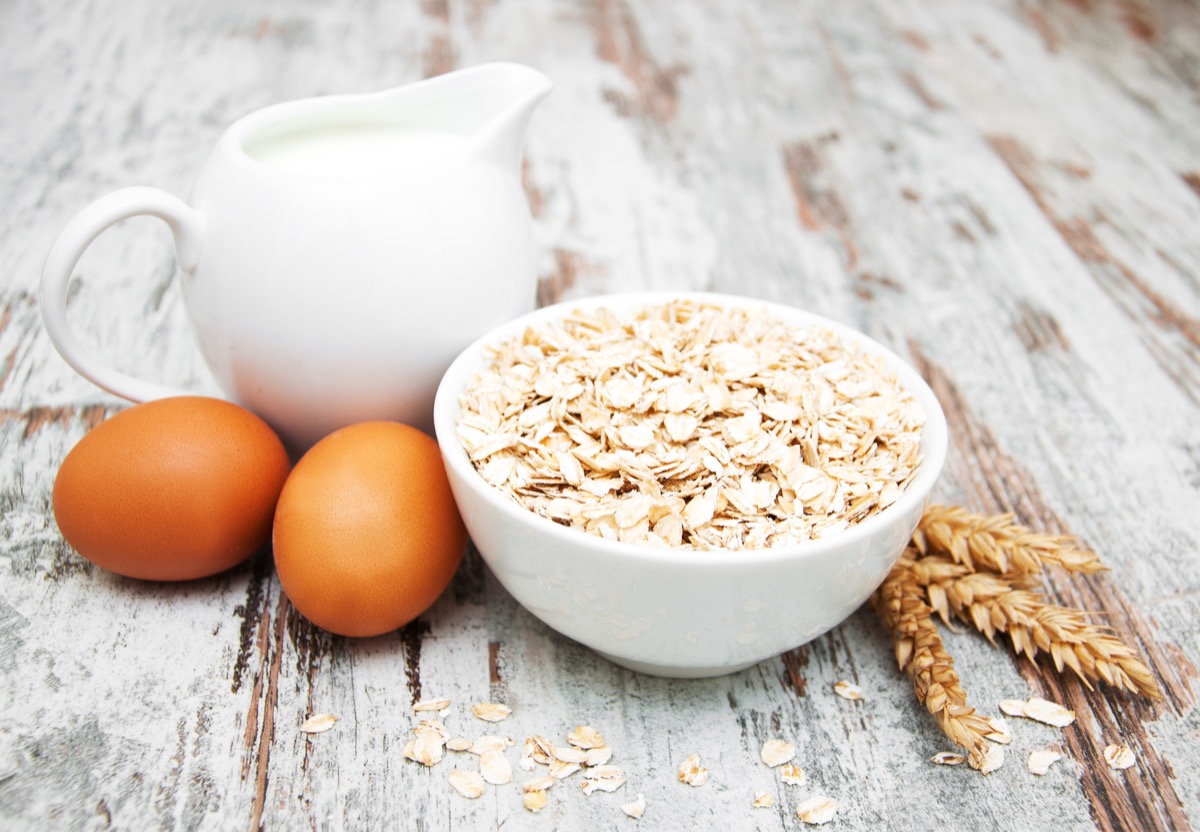
Oatmeal itself contains protein, but only about 5 grams. Compared to its nearly 30 grams of carbs, you should make sure you're getting in extra protein, especially in the morning to help maximize satiety and stabilize blood sugar. Stir in a spoonful of nut butter, add a scoop of protein powder, mix in some egg whites while it's hot (seriously! It's delicious!), make overnight oats with Greek yogurt or cottage cheese, or pair your oatmeal with a couple of slices of lean bacon. You'll squash those mid-morning snack cravings and stay full until lunch.
You're adding whole milk
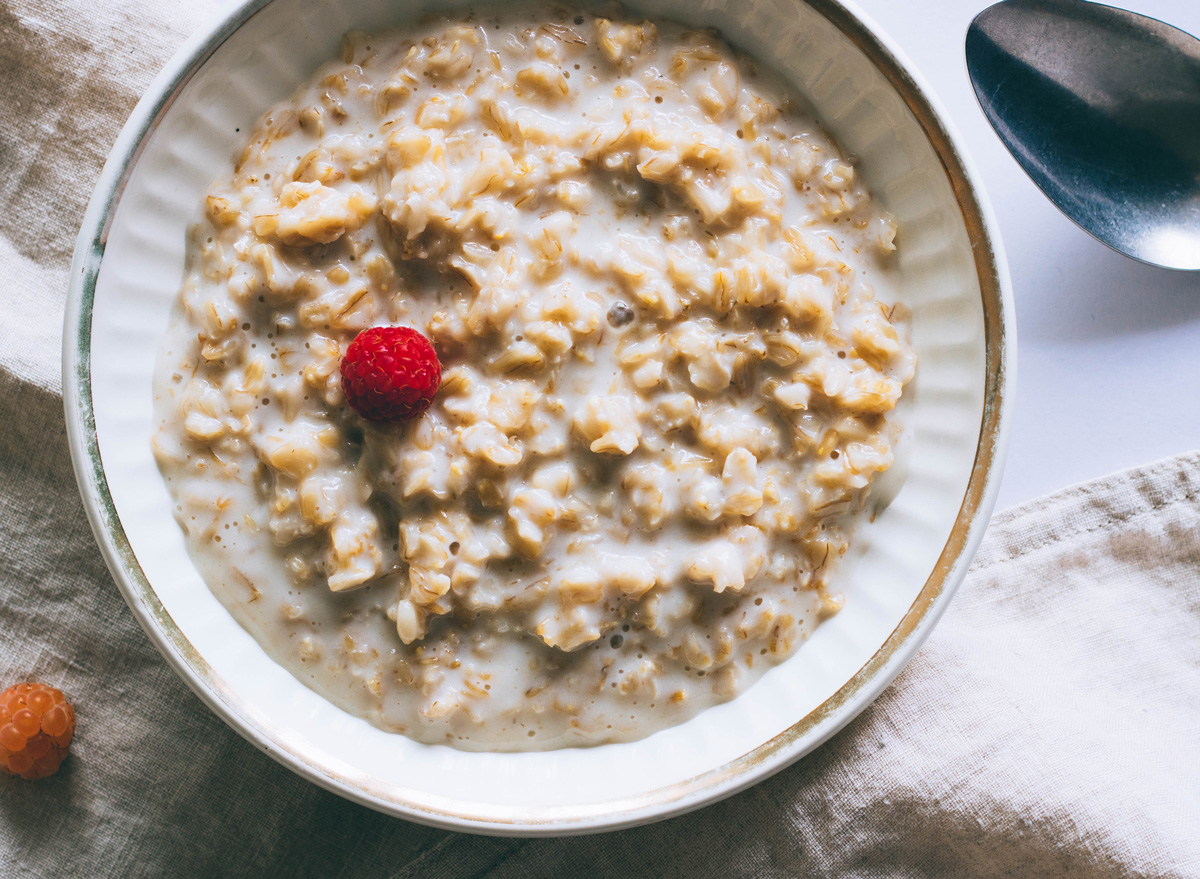
Most of us grew up drinking milk, but that doesn't mean this dairy product still deserves a place in your diet. While some of us can still digest the animal product, a majority of adults have some variation of lactose intolerance, which can cause digestive issues, bloating, and inflammation when you continue to eat dairy products. That's not the only reason you may want to pass on the milk for this morning meal. A cup of whole fat milk is 150 calories and contains 16 grams of sugar. Cut calories and decrease your risk of bloat by opting for a milk substitute. Your average almond milk is just 35 calories per serving with 0 grams of sugar. For more smart breakfast swaps, don't miss 14 Breakfast Swaps to Make for Weight Loss!
